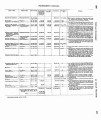| OCR Text |
Show vould give a clue to thmdeath of the lost family, for we suspected them for the murier, but we got nothing but a gold penci1,aud a ear-ring, which were recognized as the property of Mrs. .Murray. But they did not remain long in campafter receiving some presents which I gave them ; and, on returning to their lodges, we were greatly sur-rised that in less than fifteen minutes not an Indian could beseen. $he whole baud consisted of about one hundred and fifty, and III this short space of time had effected their escape from our sight. They were composed of Utahs, Cuu-i-urn-hahs, Snakes, Bauacks, and Dig-gers, who had evidently collected here for the purpose of plunder. We reached the bridge on the Humboldt on the 4th day of June, where we met a large band of the Diggers, who live near Haw's sta-tion, and who were parties to the treat,y of peace, which I made last summer. They were well disposed, and promised to try to get back the cattle and horses that belonged to Murray, and turn them over to his brother-in-law. From this point we found the road thronged with Indians every day, who would flock to our camp by hundreds at night, until we passed Stony point, on the 12th of June. They pre-sented a sad state of destitution, and said that many of their children had perished durin the winter. They are all parties to the treaty dations. . of last. summer, an 6: seem to b e trying to live up to their treaty stip- The Indians about Stony Point are called To-sow-witches, (white knives,) and derive their name from a beautiful flint foiind in the mountains of that region, and formerly used by them as a substitute for knives in dressing their food. We saw but few of them on our outward trip, except a party of about fifty whom we met on the evening of tbe 15tb, and who aaid they lived north,and had come +er to trade with the emigrants. They were well supplied with'. 4uns and horses, and were anxious to trade for ammunition. At the meadows,and about the sink of the Humboldt, we met in ~ lsolm e two hundred, belonging to the Py-ute tribe, whom we found in the same degraded condition as the Diggers ; hut wh6t .is mcdt etrange, the most of them speak the English language sufficiently well to be understood. It is e~ident thath e most of them have lived more or less in California, and have fled from thence, preferring in-dolence, with all its privations, to .the habits of civilized life. We l e h ~ e dth at there were about four hundred of this same.tribe camped in the mountains north of the sink, whom the Indians desired to send for, but I declined waiting for them, as the grass was oor, and we were anxious to reach the Carson river. We arrived at Fi agtown, on the Carson, on the morning of the 23d, having travelled all night, *hen we saw about eighty more Py-utes, who are of the same grade $those we met at the sink; and on the 25th, 26th, and 27th, we met other bands of this tribe, as we ~a s s edu p the river, amounting in all &'&me hundred and fifty. The most of those Indiana have evidently Gnce lived in California, which accounts for their knowledge of. the $iglish lan uage. Many of them have become domesticated, and &e employe! by the settlers of the valley as herdsmen and laborere &U their farms. There is another small tribe called the Was-sawa, wh..o. , livks~n6stlyo n the Sierra Nevada mountains, but claim the Car. ,, .. |














































